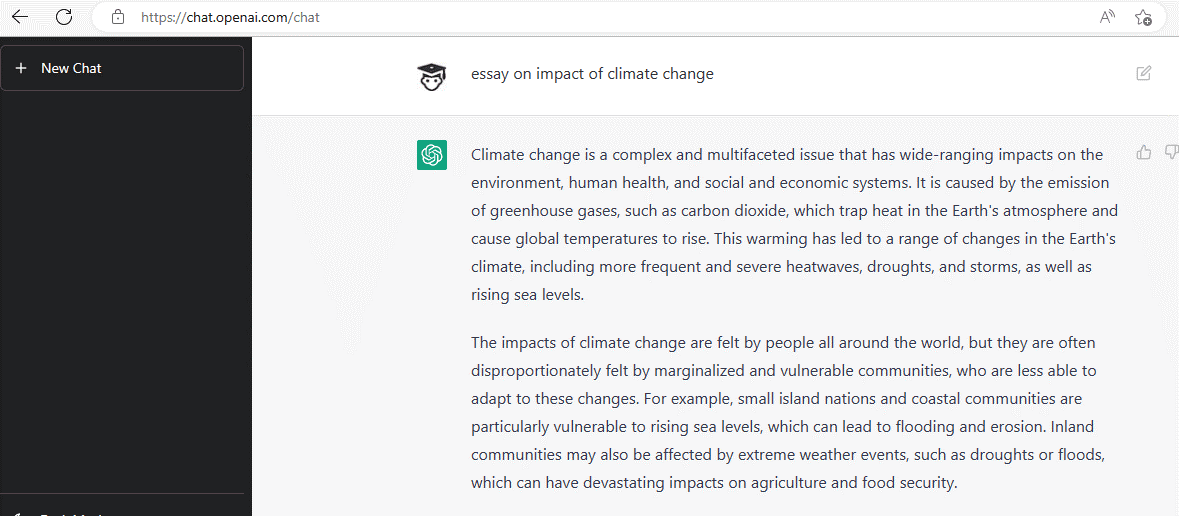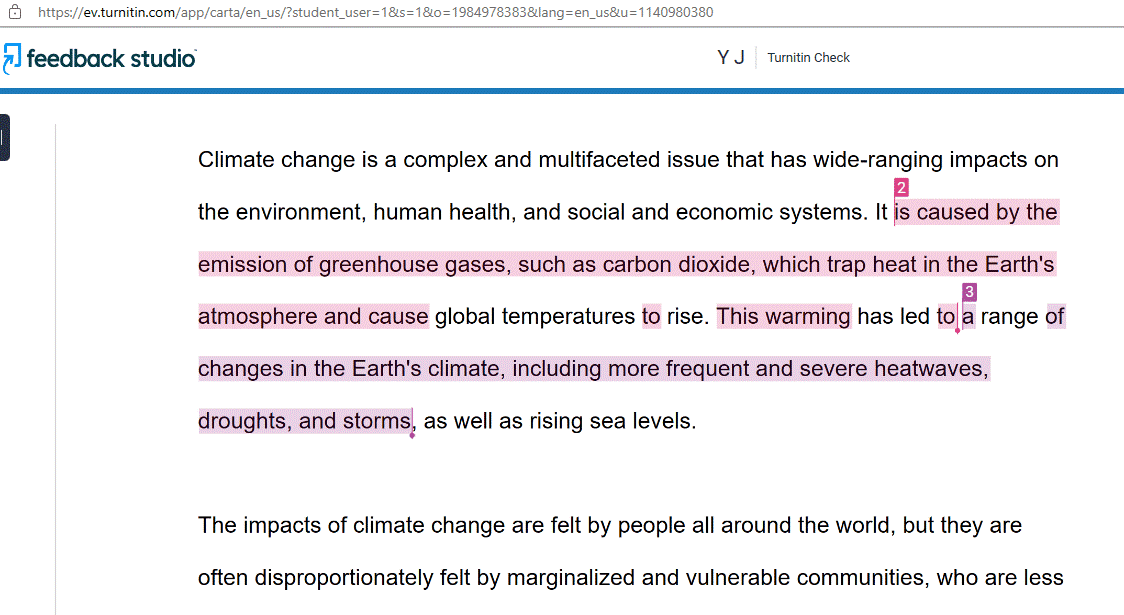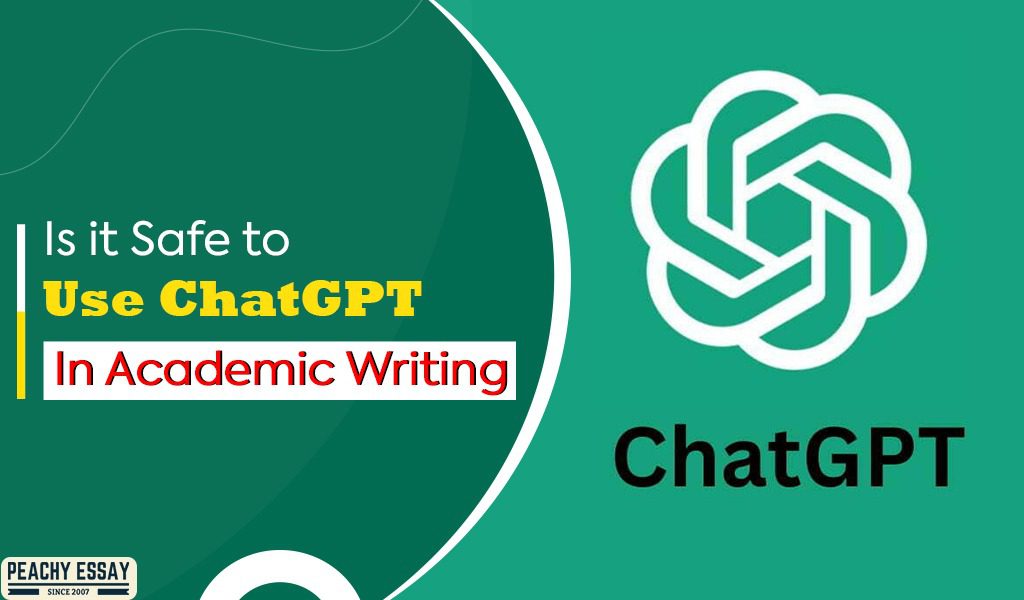Since its release to the public in late 2022, ChatGPT has become a popular tool among many Internet users for its seeming ability to generate convincing, human-like text. Because of this, you may be asking yourself this question: “Is ChatGPT good to write assignments?”
The answer is a resounding no. Using ChatGPT to do your college work runs the risk of getting you expelled because AI-written essays are easily detectable, factually inaccurate, and demonstrably inferior to anything a human can do.
Read on to learn why using ChatGPT is dangerous and some safer alternatives.
Should I Use ChatGPT?
While AI has made significant strides in recent years, it still has a long way to go before it can adequately compete with humans in most fields. This includes academic writing. Here are a number of reasons why turning in ChatGPT-generated work will almost certainly get you in trouble with your professors.
1. AI-written essays are easily detected by software
AI programs generate text in an extremely predictable way that can be measured and detected. In particular, ChatGPT manufactures essays in a repetitive manner, reusing phrases and words in a way that human writers don’t. This makes AI-written work easy to identify using software.
In fact, since ChatGPT’s release, OpenAI and other developers have already released tools that can identify AI-generated text with shocking accuracy. Universities have begun using these programs in addition to existing plagiarism suites in order to catch their students in the act of cheating.
In the first three months of 2023, over 25 universities in the U.S. expelled students for submitting work that was created using ChatGPT or other AI programs. As AI detection software becomes more sophisticated, your already slim chances of slipping an AI-written essay past your professor will drop to zero.
In addition to this, because ChatGPT generates text by synthesizing text it has taken from the Internet, existing plagiarism detection programs such as Turnitin frequently flag AI-written papers. This means you could potentially get in trouble even if your ChatGPT-written paper isn’t explicitly recognized as AI-generated.
2. ChatGPT-written essays are often inaccurate or wrong
While ChatGPT was trained on data taken from the Internet, its data set currently only goes up to September 2021. This means that it has no knowledge of current events and can’t generate accurate essays on many subjects as a result.
More worryingly, ChatGPT suffers from a phenomenon known as “hallucinations,” where it will generate false information and pass it off as factual. OpenAI has acknowledged this as a significant problem and it limits ChatGPT as a repository of useful information.
If you submit an AI-written essay full of blatantly incorrect info that ChatGPT “hallucinated,” it’ll be another dead giveaway that you cheated. This is the kind of mistake a human would never make, since a human writer will check their sources, do research, and read up on the subject before writing anything.
3. ChatGPT-written essays are shallow, generic, and lack critical thinking
While ChatGPT is capable of generating content, it doesn’t have the capacity for critical thinking. This means that if you use it to create essays, the most it will be able to do is slap information together without analyzing or evaluating it in any real substantive fashion. This can lead to a poor grade.
Additionally, while ChatGPT has access to data published on the Internet, it cannot access print books or academic journals that are in paid databases. This means that if your work relies on referencing or synthesizing information from these types of sources, ChatGPT will not be able to help you.
Finally, ChatGPT frequently commits amateurish structural errors when generating essays, such as beginning conclusion paragraphs with “in conclusion.” These are errors that professors urge their students not to commit and can act as another potential giveaway to them that you are using AI.
4. ChatGPT has significant limitations on the types of content it can produce
Because ChatGPT is an impartial AI lacking a point of view, it cannot take a definitive stance on critical issues. This makes it incapable of writing persuasive essays in which you are required to argue for a particular viewpoint. It also cannot write personal essays reliant on your own experiences.
Are Essays Written by ChatGPT Plagiarized?
Another problem with ChatGPT is that many of the essays it generates are flagged as plagiarized by detection programs such as Turnitin. This is because ChatGPT creates text by synthesizing content it has taken from the Internet, often word-for-word.
As an example of this, we used ChatGPT to write an essay on climate change. The essay was grammatically correct and well-structured, if generic, as you can see below:

However, when we submitted the paper to Turnitin, it scored a 40 percent similarity on the plagiarism metric. This is far higher than any professor or university will accept. Even worse, the ChatGPT-written paper had entire sentences lifted from other sources on the Internet:

This means that if you attempt to pass ChatGPT-generated work off as your own, the chances are extremely high that your essay will be recognized as plagiarized and you will receive a failing grade or possibly expelled.
Is ChatGPT Good to Write Assignments?
Ultimately, ChatGPT is too risky to use for your academic work. ChatGPT produces demonstrably inferior, easily-detectable work that will almost certainly be detected by your professors, resulting in you getting expelled from your university. So what should you do instead?
We recommend hiring a ghostwriter instead of using ChatGPT. Professional ghostwriters have years of experience and are experts in their topic fields, allowing them to turn out quality work, ensuring that you get a good grade no matter the subject or assignment.
Not only that, ghostwritten work cannot be detected by software or algorithms. Reliable ghostwriters do their homework, cite all their sources, and produce essays that are 100 percent original. This allows you to relax and focus on more important things in your life.
ChatGPT and Academic Writing: The Bottom Line
The simple reality is that using ChatGPT for your academic work is not recommended. While the strides that AI developers have made in the past few years are impressive, ChatGPT produces demonstrably inferior, easily-detectable work that is full of inaccuracies and blatant falsehoods.
If you attempt to pass off AI-generated essays as your own, you will almost certainly get caught. Professors and universities are well aware of ChatGPT now and are cracking down on its use by taking advantage of AI detection software. You don’t want to get expelled over something like this.
Instead of using ChatGPT, you are better off hiring a ghostwriter to help you with your college classwork. Human writers are knowledgeable, efficient, and their work can’t be caught by AI-detection algorithms, making them a great option if you need assistance with your essays or other work.




